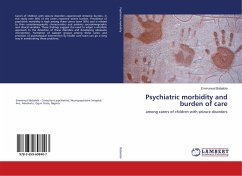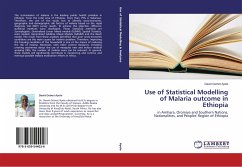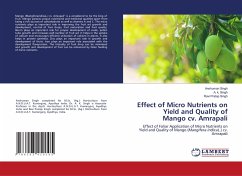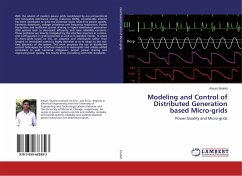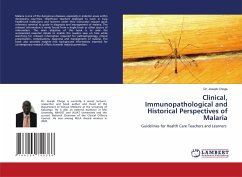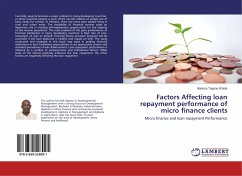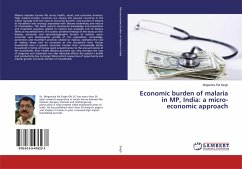
Economic burden of malaria in MP, India: a micro-economic approach
Versandkostenfrei!
Versandfertig in 6-10 Tagen
55,99 €
inkl. MwSt.

PAYBACK Punkte
28 °P sammeln!
Malaria impedes human life across health, social, and economic domains. High malaria burden countries are among the poorest countries in the world, typically with low rates of economic growth. Cost burden of malaria at household was strongly associated with disease endemicity and nature of transmission. This book reports community knowledge and prevention and treatment practices related to malaria and analysed cost of malaria illness at household level. The author presents findings of the study on the: disease, economic and socio-demographic burden of malaria; socio-economic and demographic pr...
Malaria impedes human life across health, social, and economic domains. High malaria burden countries are among the poorest countries in the world, typically with low rates of economic growth. Cost burden of malaria at household was strongly associated with disease endemicity and nature of transmission. This book reports community knowledge and prevention and treatment practices related to malaria and analysed cost of malaria illness at household level. The author presents findings of the study on the: disease, economic and socio-demographic burden of malaria; socio-economic and demographic profile of the population; knowledge, prevention and treatment practices related to malaria; estimates the cost of malaria illness and its correlates at the household level. Poorer households bear a greater economic burden than economically better household in terms of money spent proportionate to the annual income of the households. Poor health seeking practices not only increases the cost ofdiagnosis and treatment but also adversely affects the patient's health and productivity due to longer illness which causes loss of opportunity and impose greater economic burden on households.



